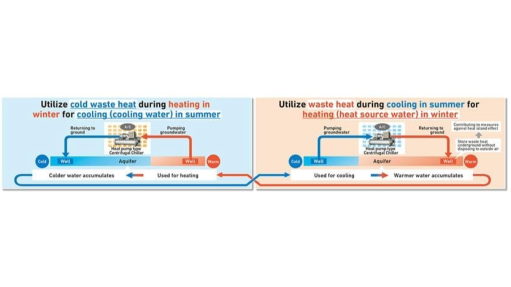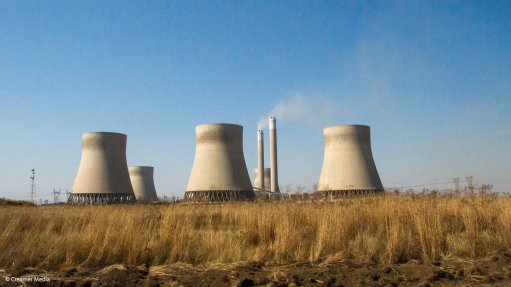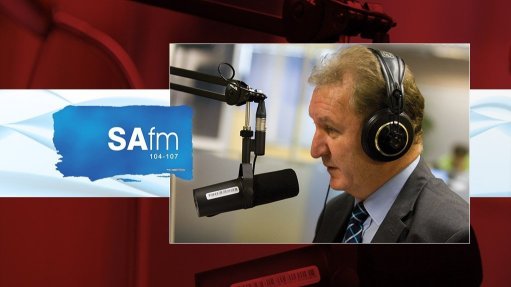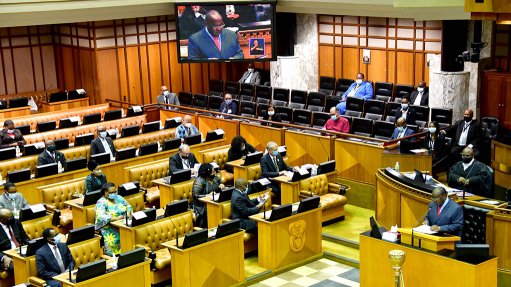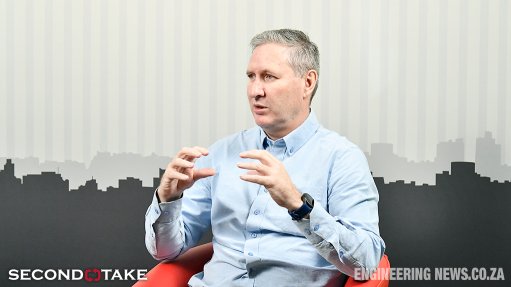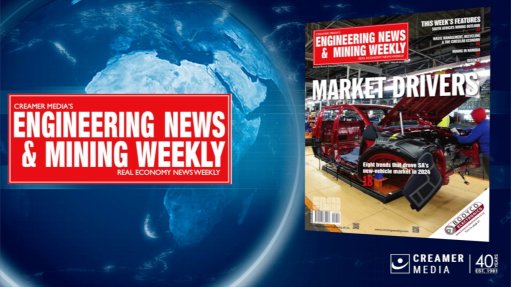Four key considerations informing NEV policy space in South Africa
As South Africa’s automotive industry explores adopting new energy vehicles (NEVs), there are four key considerations that are informing policies and initiatives around this, Trade & Industrial Policy Strategies sustainable growth senior economist Gaylor Montmasson-Clair outlined on October 2.
He was speaking during the second day of the Smarter Mobility Africa conference, which is being held this week in Johannesburg.
The first consideration was demand. Montmasson-Clair said that, while the country was not where it wanted to be in terms of NEV sales, there had been a slight uptick in 2022 and this year.
He also pointed out that the reality of the South African market must be considered, with only a third of households owning a car and the majority of people using public transport.
Further, 50% of the cars being bought are entry-level vehicles at below R260 000.
These, and other specific geographic and operational circumstances, mean that plug-in hybrid vehicles could potentially play a much larger role in South Africa than in other jurisdictions, Montmasson-Clair pointed out.
He said that capital expenditure was needed to drive demand, both for entry-level vehicles, as well as for public transport services. “If we are serious about an inclusive rollout in South Africa, it has to be public transport as well, and not just cars,” Montmasson-Clair emphasised.
He highlighted that international experience had shown that just 5% of sales were required before ramping up occurred, and while South Africa was very far from this at 0.3%, a positive was that the incentivisation period was potentially very short.
The second consideration was supply. Montmasson-Clair said that while the country had a vibrant automotive industry, what was required was serious discussions about what it would take to produce electric vehicles (EVs) here.
While there was a generous incentivisation programme through the Automotive Production and Development Programme, he emphasised that this needed to be tweaked and scaled up if the country wanted to compete, as globally there were much bigger incentives for producing EVs.
He also called for serious discussions around lithium iron batteries if the country wanted to maintain access to market moving forward.
Montmasson-Clair pointed out that the country had the minerals required for this, and must explore both a top-down approach from original-equipment manufacturers to the batteries, and a bottom-up approach from the minerals to beneficiation.
He also highlighted the need to think about reskilling the labour force. Montmasson-Clair explained that preliminary findings showed that in the move to EV manufacturing, labour intensity at vehicles manufacturing was reduced, however, this increased along the value chain. Therefore, while jobs will not be lost, they will change and become more advanced, and therefore, this required reskilling and upskilling in the automotive industry and beyond.
The third consideration entails the ecosystem around charging infrastructure and maintenance.
Montmasson-Clair averred that there were 250 000 mechanics in the country, with a third of these being informal.
He noted that reskilling and upskilling was required here to service EVs. Moreover, EVs typically required less maintenance, and consideration for what would happen to mechanics also needed to be considered, he said.
Further, he mentioned the need to think about the broader ecosystem in the shift away from the liquid fuels industry, with a long-term consideration for what would happen to infrastructure such as petrol stations.
The requisite charging infrastructure also needed to be implemented. Montmasson-Clair said that internationally, this was about one for every eight vehicles, and the country was getting there slowly, with last year being about one in five.
He also emphasised the need for visibility on these.
Lastly, there were macroeconomic considerations.
Montmasson-Clair averred that the net effect did not matter, rather, what was important, was that there would be stakeholders that benefited and those that bore the costs.
For example, the country will be less reliant on liquid fuel imports, which are costly and high emitters.
However, there would also be a reduction in fuel levies, which fund road infrastructure and the fiscus, he explained.
Moreover, some households would potentially have higher disposable income owing to reduced costs. However, what must be explored was if this would also include public transport users, Montmasson-Clair noted.
Comments
Press Office
Announcements
What's On
Subscribe to improve your user experience...
Option 1 (equivalent of R125 a month):
Receive a weekly copy of Creamer Media's Engineering News & Mining Weekly magazine
(print copy for those in South Africa and e-magazine for those outside of South Africa)
Receive daily email newsletters
Access to full search results
Access archive of magazine back copies
Access to Projects in Progress
Access to ONE Research Report of your choice in PDF format
Option 2 (equivalent of R375 a month):
All benefits from Option 1
PLUS
Access to Creamer Media's Research Channel Africa for ALL Research Reports, in PDF format, on various industrial and mining sectors
including Electricity; Water; Energy Transition; Hydrogen; Roads, Rail and Ports; Coal; Gold; Platinum; Battery Metals; etc.
Already a subscriber?
Forgotten your password?
Receive weekly copy of Creamer Media's Engineering News & Mining Weekly magazine (print copy for those in South Africa and e-magazine for those outside of South Africa)
➕
Recieve daily email newsletters
➕
Access to full search results
➕
Access archive of magazine back copies
➕
Access to Projects in Progress
➕
Access to ONE Research Report of your choice in PDF format
RESEARCH CHANNEL AFRICA
R4500 (equivalent of R375 a month)
SUBSCRIBEAll benefits from Option 1
➕
Access to Creamer Media's Research Channel Africa for ALL Research Reports on various industrial and mining sectors, in PDF format, including on:
Electricity
➕
Water
➕
Energy Transition
➕
Hydrogen
➕
Roads, Rail and Ports
➕
Coal
➕
Gold
➕
Platinum
➕
Battery Metals
➕
etc.
Receive all benefits from Option 1 or Option 2 delivered to numerous people at your company
➕
Multiple User names and Passwords for simultaneous log-ins
➕
Intranet integration access to all in your organisation







